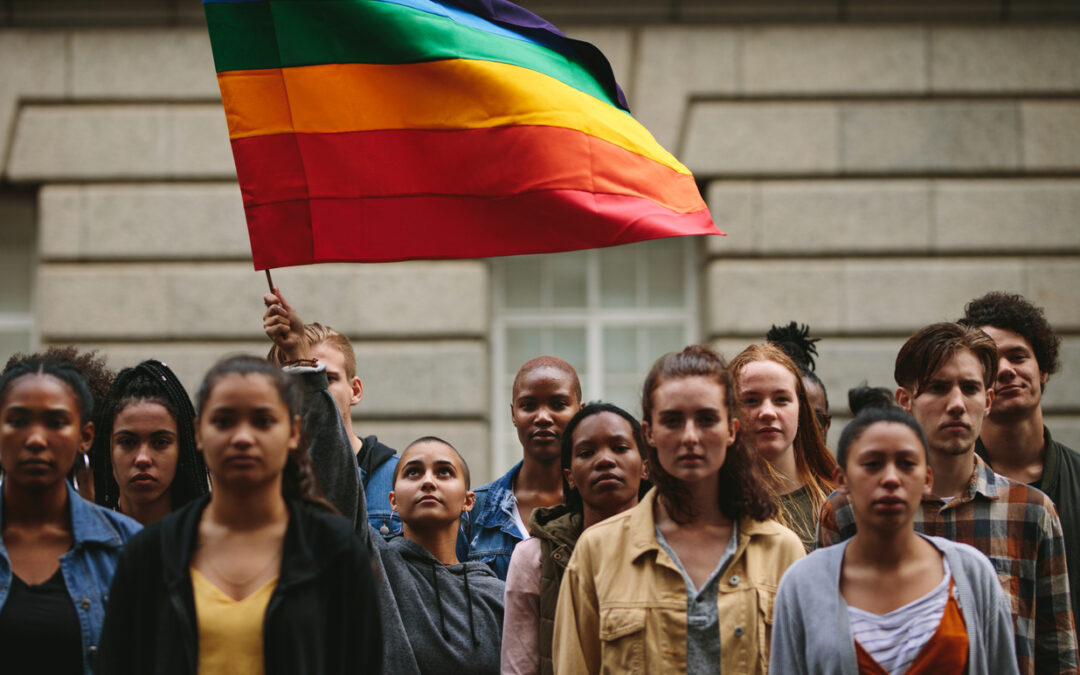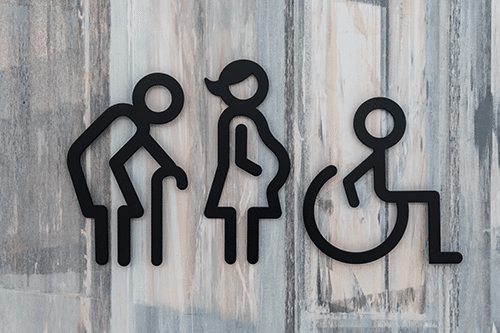Discrimination on the basis of sexual orientation or gender status may influence your employment status, work environment, health benefits and cause many other workplace problems. Legislation in this area is evolving quickly. We will provide you some information on discrimination against the LGBTQ community if you believe that you may have been discriminated against on account of your sexual orientation or gender identity.
Discrimination on the basis of gender identity or sexual orientation is treating someone differently simply because of their actual or perceived sexual orientation (lesbian, gay, bisexual, asexual, pansexual, etc.) or gender identity (transgender, non-binary, etc.). This implies that prejudice may arise due to other people’s impression of the orientation or position of someone, whether or not this view is accurate. It may also be based on the relationship between a person and someone with a different sexual orientation or gender identity. Those who are discriminated against on the basis of sexual orientation may also be discriminated against or harassed on the basis of sex, disability (e.g., real or imagined H.I.V.), or marital status.
Discrimination in the workplace
Some common types of discrimination against the LGBTQ community could include:
- Being treated differently: The employer may not employ, promote, or punish or fire you because your employer is against people from the LGBTQ community being in their workplace. According to Talia Y. Guerriero who is an attorney at Meyer Employment Law with a background in labor and union rights, these specific acts may determine discrimination or being treated differently because of your LGBTQ identity, “You may be frequently judged more strictly for your work assignments. You may even get a decrease in pay due to your LGBTQ identity. You could even be excluded from meetings, and other office activities or receive a cold shoulder due to your identity.” A promotion, a mistaken termination, an unfair write-up, and other severe hostile employment measures may qualify as different treatment. Some businesses have rules that openly discriminate against LGBTQ workers, while others have more subtle but no less genuine discrimination. You may discover that you may start being regarded differently when you go out as a gay to colleagues or put a picture of your partner on your desk. Discrimination may originate from just a few individuals inside the business, your supervisor, or even the C.E.O.
- Harassment: As a person from the LGBTQ community, if you are obliged to listen to opinions on your mannerisms or sexual activity, sexual jokes, demands for sexual favors, pressures on dates, touching or taking, leering, gestures, hostile comments, photos, or drawings that depict negative a particular sexual orientation, sexual assaults or violations at the workplace then it can be considered as harassment. Your harasser may be an employer, boss, colleague, or customer and be of the same or different sex or gender.

Laws against discrimination against the LGBTQ community
Title VII of the 1964 Civil Rights Act (“Title VII”) bans discrimination on the grounds of the ‘sex of a person.’
In Bostock v. Clayton County of Georgia (2020), the Supreme Court ruled that dismissing people by discrimination on the grounds of sex because of their sexual orientation or gender identity violates Title VII’s ban on discrimination. The Court reached its decision by relying on the plain language of Title VII. As stated by the Court, “discrimination based on homosexuality or transgender status inevitably involves discrimination on the basis of sex, the former being impossible without the latter.” For example, if a company dismisses an employee because she is a woman who is married to a woman but does not do the same with a male married to a woman, the employer takes action because of sex since the employee was not going to be dismissed for any other reason but because she is a woman. Similarly, suppose the employer discards an employee because they have been assigned male at birth but use female pronouns and identify as female. The employer takes action against the person on the grounds of sex. In that case, the act of firing is not taken due to any specific action by the employee but because the employee initially identified as a male. These actions would lead to a violation of Title VII.
Suppose you are an LGBTQ employee working in the federal sector. In that case, several judgments over the years provide protection to you against discrimination because of your gender status or sexual orientation. The ruling of Macy v. Dep’t of Justice was that the deliberate discrimination against transgender individuals is, by definition, sex-based discrimination and thus violates Title VII. In the case of Darin B. v. U.S. Office of Personnel Mgmt., the male transgender plaintiff declared an acknowledgeable claim of sex discrimination when he alleged that the pre-authorization of the nipple-areola reconstruction was denied by its federal employee health benefits and insurance plan and that failure to use or exhaust the process to revise the decision of an insurance company was not precluded. In the case of Lusardi v. Dep’t of the Army, the Commission concluded that restrictions on the ability of a transgender female to use common female toilet facilities for women represented disparate treatment on the basis of sex and that toilet limitation combined with hostile remarks, including intentional prejudice, created a gender-based, hostile work environment. The judgment of the Plaintiff v. Dep’t of Veterans Affairs held that the Agency’s refusal to modify the records of a transgender employee for over a year, combined with a hostility of the information security officer towards him due to the change in gender identity from female to male, was sufficiently severe to represent a claim of sexual harassment. Furthermore, Jameson v. U.S. Postal Serv. ruled that the deliberate abuse of the new name and pronoun of the employee may damage the employee and may constitute discrimination on the grounds of gender harassment.
These are the broad protections given to both private and federal employees on the federal level. If you are a private sector and state/local government employee, you can file a charge of LGBTQ discrimination by contacting the EEOC at 1-800-669-4000. The EEOC is in charge of enforcing actions against LGBTQ discrimination at the federal level.
According to Talia, there are specific acts that can be considered as discrimination against the LGBTQ community at the workplace. These include:
- “Homophobic or transphobic slurs used against you at your workplace.
- Derogatory language against the LGBTQ community that is thrown at you at the workplace.
- Intentional misgendering. (Using he/him, instead of she/her or they/them.)
- Using assigned birth name instead of the stated name.
- Failure to provide you with bathrooms or changing facilities.
- Failure to address harassing behavior.”
Retaliation: Under Oregon law, you are protected from retaliation of your employer against you if you report an incident of LGBTQ discrimination in your workplace. As per Talia, “You are protected under Oregon even if you complain about something that you perceive as discriminatory communities.” These are protected under the whistleblower protection laws. Talia adds that “You do not have to be precisely right about the discrimination to be protected under the law, as long as you have a good faith belief that the act committed was a violation of law, you will be protected against retaliation.”
Difference between sex discrimination and gender identity discrimination
Sex discrimination is unfavorable for a candidate or employee because of his or her gender or association with an organization or group linked to a specific gender. Legislations prohibit sex discrimination in all aspects of work, including recruitment, firing, remuneration, assignment, promotion, dismissal, training, fringe benefits, and any other terms and conditions. Discrimination against gender identity is more particular to individuals who do not adhere to societal stereotypes about gender identity or gender expression. For instance:
- Michael identifies as a man. His colleagues speak to him directly as “Ms.,” and he is frequently heard by peers using feminine pronouns like “she” and “her.” Michael urged people to speak to him properly, but most of them made little attempt to do so.
- You get recruited for a new job and then tell your new employer that you are transitioning. Your employer informs you, after hearing this, that your job is no longer available.
It was most recently clarified by the Bostock v. Clayton County of Georgia (2020), that transgender or non-binary individuals are protected by laws of discrimination on the basis of sex, sexual orientation, and/or gender identity.
When you have suffered discrimination due to your gender identity and gender expression, you may want to contact a local lawyer to decide if you should launch a federal or state law case.
LGBTQ Discrimination Lawyers in Portland Oregon
The law in Oregon is complicated as to what would lead to a legally actionable claim. Our Oregon LGBTQ discrimination attorneys represent clients in all manners of employment cases, including those that involve discrimination because of them belonging to the LGBTQ community. It can include acts, such as firing, demoting, harassing, refusing to hire, or refusing to promote due to a person’s sexual orientation or gender identity.
Have you experienced LGBTQ discrimination in your workplace? Do you have questions about it? Allow an Oregon LGBTQ discrimination attorney to help. Contact us at Meyer Employment Law.
Discrimination in Oregon
read more about Oregon discrimination law.




